Anthropology
-
 Genetics
GeneticsAfrica’s oldest human DNA helps unveil an ancient population shift
Long-distance mate seekers started staying closer to home about 20,000 years ago.
By Bruce Bower -
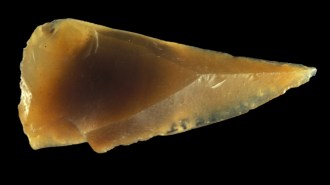 Archaeology
ArchaeologyHomo sapiens may have reached Europe 10,000 years earlier than previously thought
Archaeological finds in an ancient French rock-shelter suggest migrations to the continent started long before Neandertals died out.
By Bruce Bower -
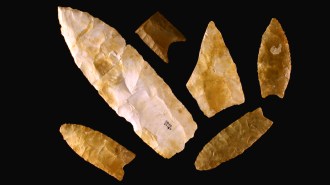 Archaeology
Archaeology‘Origin’ explores the controversial science of the first Americans
A new book looks at how genetics has affected the study of humans’ arrival in the Americas and sparked conflicts with Indigenous groups today.
By Bruce Bower -
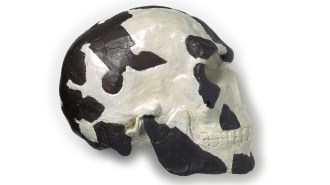 Anthropology
AnthropologyHomo sapiens bones in East Africa are at least 36,000 years older than once thought
Analyses of remnants of a volcanic blast push the age of East Africa’s oldest known H. sapiens fossils at Ethiopia’s Omo site to 233,000 years or more.
By Bruce Bower -
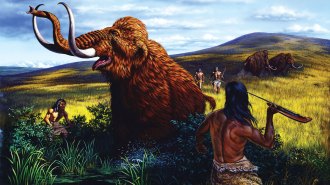 Archaeology
ArchaeologyClovis hunters’ reputation as mammoth killers takes a hit
Early Americans’ stone points were best suited to butchering the huge beasts’ carcasses, scientists contend.
By Bruce Bower -
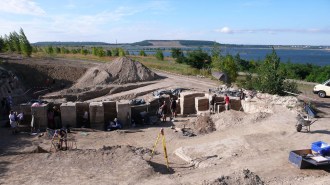 Archaeology
ArchaeologyNeandertals were the first hominids to turn forest into grassland 125,000 years ago
Neandertals’ campfires, hunting and other activities altered the land over 2,000 years, making them the first known hominids to impact their environs.
By Bruce Bower -
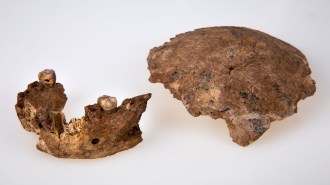 Anthropology
Anthropology2021 research reinforced that mating across groups drove human evolution
Fossils and DNA point to mixing and mingling among Homo groups across vast areas.
By Bruce Bower -
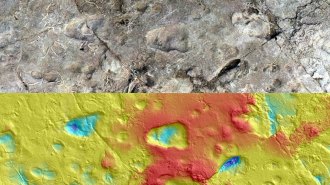 Anthropology
AnthropologyAncient footprints suggest a mysterious hominid lived alongside Lucy’s kind
A previously unknown hominid species may have left its marks in muddy ash about 3.66 million years ago in what is now East Africa.
By Bruce Bower -
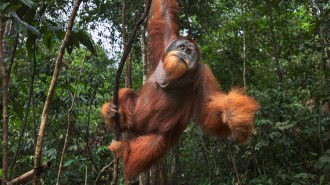 Anthropology
AnthropologyAncient giant orangutans evolved smaller bodies surprisingly slowly
Fossil teeth from Chinese caves indicate that a single, ancient orangutan species gradually trimmed down over nearly 2 million years.
By Bruce Bower -
 Anthropology
Anthropology‘The Dawn of Everything’ rewrites 40,000 years of human history
A new book recasts human social evolution as multiple experiments with freedom and domination that started in the Stone Age.
By Bruce Bower -
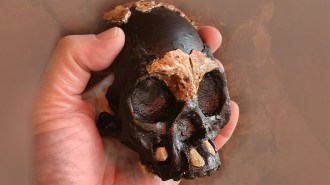 Anthropology
AnthropologyA child’s partial skull adds to the mystery of how Homo naledi treated the dead
The isolated discovery of a Homo naledi child’s skull fragments and teeth plays into idea that small-brained species ritually placed the dead in caves.
By Bruce Bower -
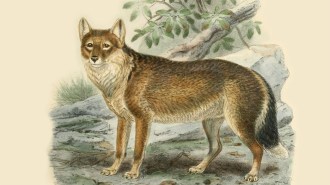 Humans
HumansAncient human visitors complicate the Falkland Islands wolf’s origin story
Scientists have debated how the Falkland Islands’ only land mammal journeyed to the region: by a long-ago land bridge or with people.